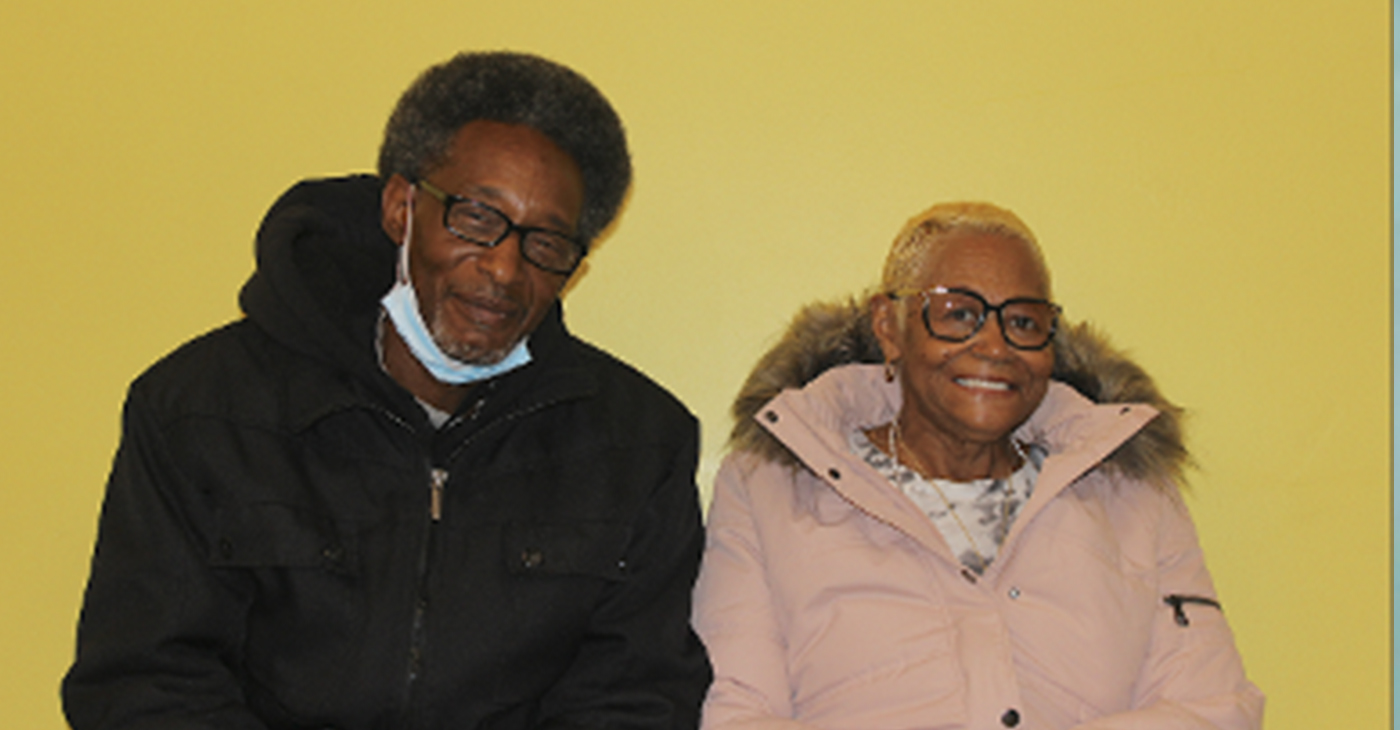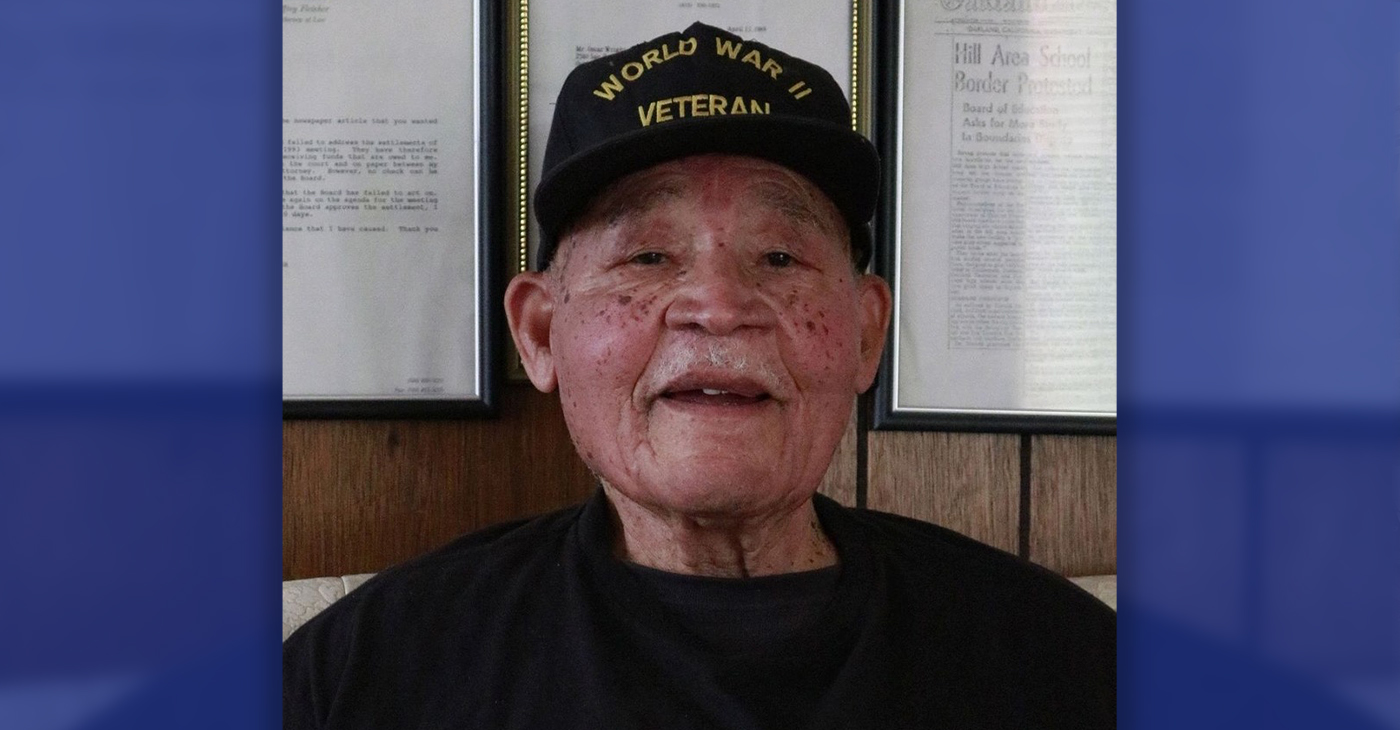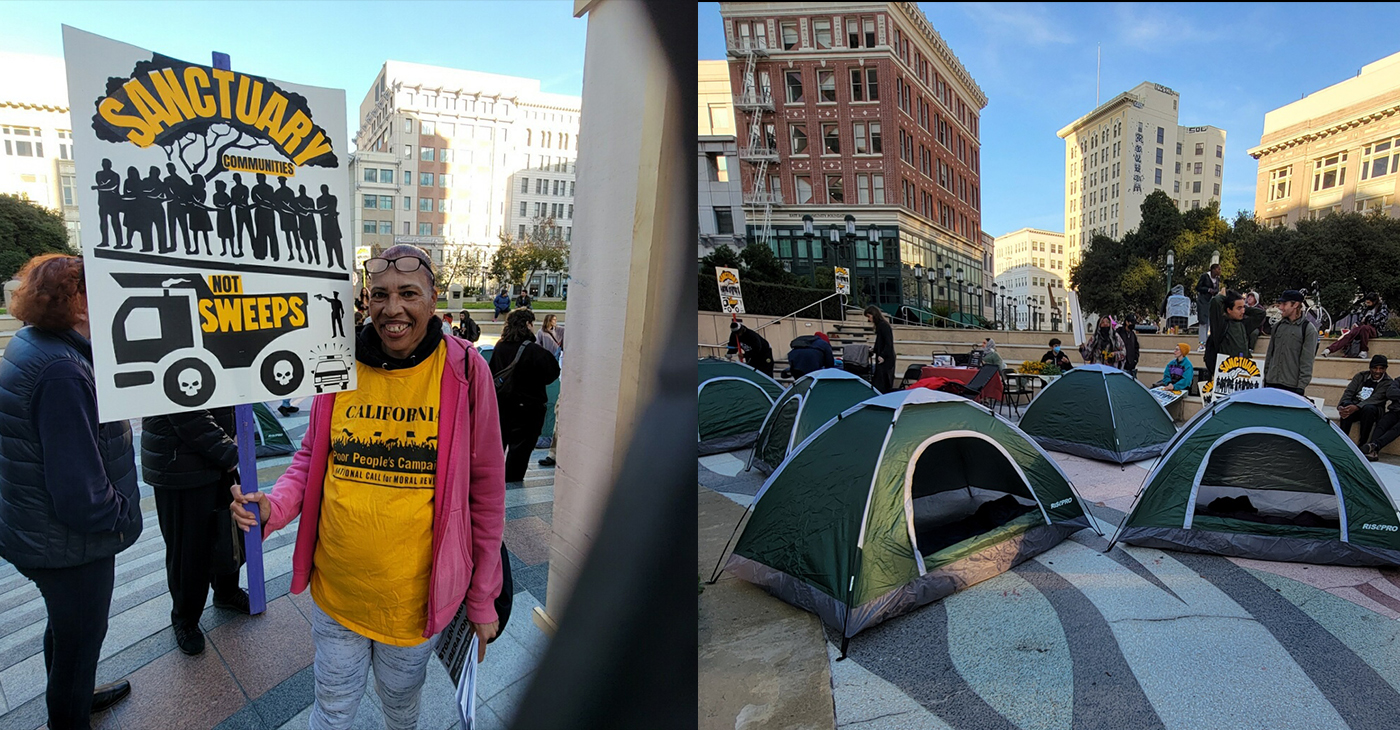Activism
Alameda County In-Home Caretakers Seek $20 Wage, More Accessible Health Care
According to Lupe Martinez, who is SEIU 2015’s chief negotiator, many caretakers work well over 80 hours a month, but don’t receive healthcare, because much of those hours are off the books. As a result, many caretakers are effectively working a full-time job with no healthcare benefits. To help with this problem, SEIU 2015 wants a contract that would lower the minimum hours caretakers would need to work per month to qualify for such benefits.

By Zack Haber
SEIU 2015, the union that represents more than 21,000 caretakers who work for Alameda County’s In-Home Supportive Services (IHSS), will be starting negotiations for a new contract early next year that they hope will ensure a $20-an-hour wage and improved access to health care for its members.
“Alameda is one of the most expensive places to live in the Bay Area,” said Lupe Martinez, who is SEIU 2015’s chief negotiator. “In order to provide their essential services, our members need to be able to have the proper wages to live here.”
SEIU 2015 sees their proposed wage increase as a way of reducing the wage gap across gender and racial lines. Across California, 81% of IHSS caretakers are women and 74% are people of color.
IHSS caretakers support those who are disabled or over 65 years old, and who are also unable to live at home safely without help. Typical duties include cooking, cleaning, giving out medications, helping with grocery shopping and bathing, and taking clients to doctor’s appointments.
“People do in-home care work because they love the people,” said Allen Whitfield, a lifelong Oakland resident who’s now in his 60s and works as a caretaker for two clients. “It’s definitely not for the pay.
Currently, Alameda County IHSS caretakers make an hourly wage of $15.75. Starting next year, their wage will increase to $16.75. The union plans to ask for a contract that allows all its members to make at least $20 an hour by 2024, and they’ve been circulating a petition calling for all California caretakers to get this wage increase.
Whitfield likes his job and says he’s “all for being there for people who need help, especially the underdog.” With the current rate of pay though, he can’t afford to rent his own apartment. Even renting a room in a house with roommates is so expensive that he often has to do odd jobs over the weekend to pay his bills. He regularly gets opportunities for steady work in other places for a higher salary, but he doesn’t take the work for one key reason.
“The only reason I don’t take other work,” Whitfield said. “Is that it would get in the way of taking care of my mom.”
Like many, but not all, IHSS caretakers, Whitfield’s clients are family members. In addition to caring for his mother, one of his distant relatives is also a client. Although on paper Whitfield works a little under 30 hours a week, he says he spends well over 40 hours a week caring for his mother and his distant relative.
According to Lupe Martinez, Whitfield’s experience is common among IHSS workers. She says that many clients’ need for care often far exceeds the number of hours that the county allots them to hire a paid caretaker. As a result, many caretakers, and not just those who work for family members, work extra hours off the books because they want to be there for their clients who often have no one else to turn to.
“If you see someone badly in need of care services,” she said. “You’re going to want to help them.”
“It’s an endless job because most of the time [clients] need more care than the hours provided,” said Whitfield.
The extra, unpaid work sometimes makes the job unsustainable. In the mid-2010s, Whitfield had another client who was blind and needed a lot of extra care. But Whitfield couldn’t get enough on-the-book hours to afford to be able to keep him as a client. The blind man has a new caretaker now, and he keeps in touch with Whitfield as a friend by calling him occasionally. While looking back on the forced separation, Whitfield described it as “kind of heartbreaking.”
Partly due to the reality that caretakers work off-the-book hours, SEIU 2015 wants to change how the county provides them health care. The county currently requires that all IHSS caretakers have at least 80 on-the-book hours per month to qualify for health care benefits.
According to Martinez, many caretakers work well over 80 hours a month, but don’t receive healthcare, because much of those hours are off the books. As a result, many caretakers are effectively working a full-time job with no healthcare benefits. To help with this problem, SEIU 2015 wants a contract that would lower the minimum hours caretakers would need to work per month to qualify for such benefits.
The Oakland Post called the Alameda County’s administration office and e-mailed that office detailed questions about how IHSS hours are allocated to clients and if the county plans to expand health care coverage and/or provide a $20 wage in the new contract but was met with no response.
Although Whitfield is committed to taking care of his clients, he feels the wage he makes from the county as a caretaker as well as the lack of appropriate hours is unfair and that the low pay “keeps people in poverty.”
“We just don’t get paid enough for the job that we do and the care that’s needed,” he said. “I don’t think we’re valued at all.”
Activism
Oakland Post: Week of December 25 – 31, 2024
The printed Weekly Edition of the Oakland Post: Week of December 25 – 31, 2024

To enlarge your view of this issue, use the slider, magnifying glass icon or full page icon in the lower right corner of the browser window. ![]()
Activism
Living His Legacy: The Late Oscar Wright’s “Village” Vows to Inherit Activist’s Commitment to Education
Kingmakers of Oakland (KOO), a nonprofit organization that works to improve educational and life outcomes for Black boys and men, stated that “Oscar Wright is one of the most prolific, consistent, and committed advocates of equity for Black students and Black Families here in Oakland for the past six decades.”

By Antonio Ray Harvey, California Black Media
Activists mourning Oscar Carl Wright’s death, have pledged to continue his lifelong mission of advocating for Black students and families in Northern California.
Wright, 101, who passed away on Nov. 18, was involved in Oakland’s educational affairs until his death.
Now, friends and admirers acknowledge that carrying on his legacy means doubling down on the unfinished work that Wright dedicated his life, time, and resources to, according to Y’Anad Burrell, a family friend and founder of San Francisco-based Glass House Communications (GHC).
“Mr. Wright did a lot of work around equity, specifically, for Black students based on their needs — whether it was tutoring, passing classes, or graduating,” Burrell said.
Wright became a champion for his children’s education, recognizing the disparities between their school experiences and his own upbringing in the Mississippi Delta.
Burrell told California Black Media (CBM) that the crisis of unequal access to resources and a quality education continues to affect the Oakland Unified School District (OUSD).
According to Oakland Reach, in the city of Oakland, only 3 in 10 Black and Brown students are reading at or above grade level. In addition, only 1 in 10 are doing math at or above grade level.
Oakland REACH is a parent-run, parent-led organization. It aims to empowers families from the most underserved communities to demand high-quality schools for their children.
Wright’s work as an activist had impact across the state but he was primarily known in the Bay Area. Alongside the Black United Front for Educational Reform (BUFER), he filed a complaint against OUSD for violating the Civil Rights Act of 1964.
In 2000, the OUSD school board proposed an action plan to address educational inequity, but it was never implemented.
Wright later founded the African American Honor Roll Celebration at Acts Full Gospel Church, an award that recognizes Black students with a grade point average of 3.0 or better. Each year, more than 1,000 students are honored at this ceremony.
Kingmakers of Oakland (KOO), a nonprofit organization that works to improve educational and life outcomes for Black boys and men, stated that “Oscar Wright is one of the most prolific, consistent, and committed advocates of equity for Black students and Black Families here in Oakland for the past six decades.”
Burrell said that one of the main reasons Wright’s work was so essential for families and children in Oakland that is the direct relationship between acquiring a quality education and affording quality housing, maintaining food security, achieving mental wellness, and securing stable employment.
Wright was the child of sharecroppers from Coahoma County, Mississippi. He attended Alcorn State University, a Historically Black College and University (HBCU).
In the late 1950s, Wright and his family relocated to the Bay Area where he worked as a contractor and civil engineer. He later became an active member of the National Association for the Advancement of Colored People (NAACP).
Burrell said the people who will carry on Wright’s work are part of a “village” that includes KOO’s CEO Chris Chatmon. Wright was a mentor to Chatmon.
“It will not be one entity, one person, or one organization that picks up the baton because it was a village effort that worked alongside Mr. Wright for all these years,” Burrell said.
Burell says that legacy will live on.
Activism
Protesters Gather in Oakland, Other City Halls, to Halt Encampment Sweeps
The coordinated protests on Tuesday in San Francisco, Oakland, Vallejo, Fresno, Los Angeles and Seattle, were hosted by Poor Magazine and Wood Street Commons, calling on cities to halt the sweeps and focus instead on building more housing.

By Post Staff
Houseless rights advocates gathered in Oakland, San Francisco, Los Angeles, and other city halls across California and Washington state this week protesting increased sweeps that followed a U.S. Supreme Court decision over the summer.
The coordinated protests on Tuesday in San Francisco, Oakland, Vallejo, Fresno, Los Angeles and Seattle, were hosted by Poor Magazine and Wood Street Commons, calling on cities to halt the sweeps and focus instead on building more housing.
“What we’re dealing with right now is a way to criminalize people who are dealing with poverty, who are not able to afford rent,” said rights advocate Junebug Kealoh, outside San Francisco City Hall.
“When someone is constantly swept, they are just shuffled and things get taken — it’s hard to stay on top of anything,” said Kealoh.
Local houseless advocates include Victoria King, who is a member of the coordinating committee of the California Poor People’s Campaign. She and Dr. Monica Cross co-chair the Laney Poor People’s Campaign.
The demonstrations came after a June Supreme Court ruling expanded local governments’ authority to fine and jail people for sleeping outside, even if no shelter is available. Gov. Gavin Newsom in California followed up with an order directing state agencies to crack down on encampments and urging local governments to do the same.
Fresno, Berkeley and a host of other cities implemented new rules, making it easier for local governments to clear sidewalk camps. In other cities, such as San Francisco, officials more aggressively enforced anti-camping laws already on the books.
-

 Activism4 weeks ago
Activism4 weeks agoOakland Post: Week of November 27 – December 3, 2024
-

 Activism2 weeks ago
Activism2 weeks agoButler, Lee Celebrate Passage of Bill to Honor Congresswoman Shirley Chisholm with Congressional Gold Medal
-

 Activism2 weeks ago
Activism2 weeks agoPost News Group to Host Second Town Hall on Racism, Hate Crimes
-

 Activism2 weeks ago
Activism2 weeks agoDelta Sigma Theta Alumnae Chapters Host World AIDS Day Event
-

 Business2 weeks ago
Business2 weeks agoLandlords Are Using AI to Raise Rents — And California Cities Are Leading the Pushback
-

 Activism3 weeks ago
Activism3 weeks agoOakland Post: Week of December 4 – 10, 2024
-

 #NNPA BlackPress4 weeks ago
#NNPA BlackPress4 weeks agoNational Action Network Announces 2025 Inauguration Day Rally
-

 Activism2 weeks ago
Activism2 weeks agoOakland Post: Week of December 11 – 17, 2024



























































